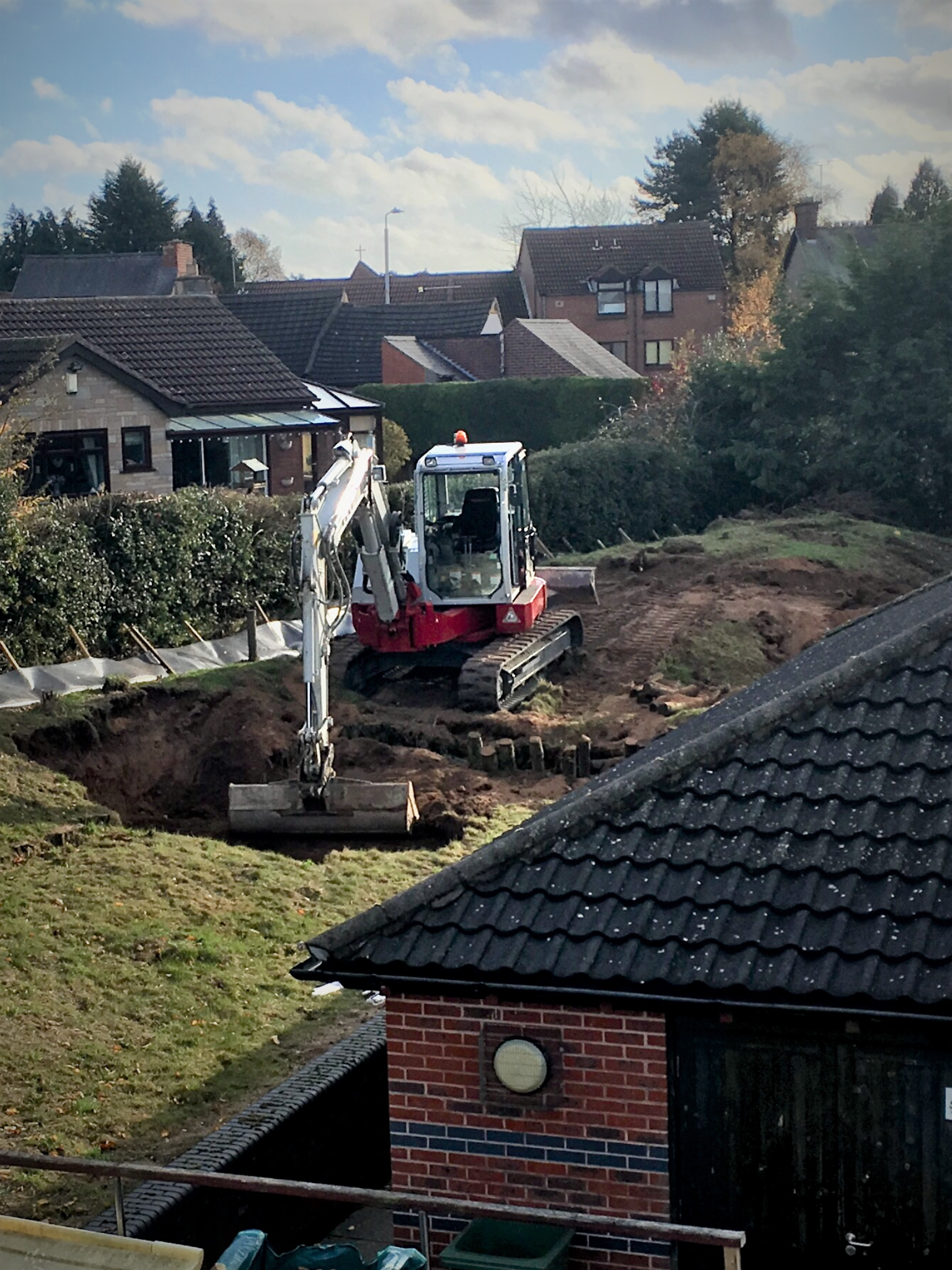onsite support - ecological clerk of works and watching briefs
B.A.T. Ecological can provide an experienced Ecological Clerk of Works on your site, or experienced consultant ecologists to provide wildlife watching briefs during construction activities - contact info@bat-ecological.co.uk | +44 (0) 7870 157022.
An Ecological Clerk of Works (ECoW) is often required on sites where important ecological receptors could be affected by development, and often certain planning conditions for larger developments will specify this requirement. Protected species licenses also often require the Named Ecologist (or their Accredited Agent) or the Class Licence holder to be onsite in an ECoW-type role, to oversee the implementation of the mitigation measures.
An ECoW generally works for a developer, but independently of them, to ensure that the construction works on a scheme are undertaken in accordance with planning conditions, legislation and best practice, project plans, regulator requirements, or specified methods and mitigation (including under wildlife licenses) wherever these are applicable. The Association of Environmental and Ecological Clerks of Works (AEECoW), which was founded in 2014 to “raise professional standards amongst ECoWs while raising awareness of the role”, recognises two types of ECoW:
An Auditor is seen as “a passive means of monitoring compliance with planning conditions, or equivalent. It does not include for proactive support when incidents occur or when the developer may require advice or support in delivering compliance”;
An Adviser is “often used on complex sites where risks to environmental sensitivities are higher and/or less well understood. In this situation, the ECoW works with the developer or contractor and provides ongoing advice and support in addition to their compliance monitoring and reporting obligations”.
You can read more about what an ECoW typically does in this excellent Inside Ecology article.
An ecological watching brief is perhaps a less formal role than an ECoW, however it can still be a key requirement where ecological receptors could be at risk from development-type activities. A suitably qualified ecologist can provide a watching brief for operatives onsite during site clearance or construction works to help reduce the likelihood of them harming wildlife. A watching brief might be provided where birds could be nesting for example, to help avoid disturbing any, or where mammals or amphibians could be foraging or commuting to help avoid harming them. The ecologist providing the watching brief can also prepare records of progress for auditing, deliver ‘toolbox' talks’ to ensure operatives are aware of their legal obligations under wildlife law, and they can also help provide instant ecological advice in accordance with this if required.
Please contact B.A.T. Ecological if you need an experienced ECoW on your site, or a consultant ecologist with a detailed understanding of wildlife legislation and the construction process, who can also communicate effectively between different disciplines: info@bat-ecological.co.uk | +44 (0) 7870 157022.




